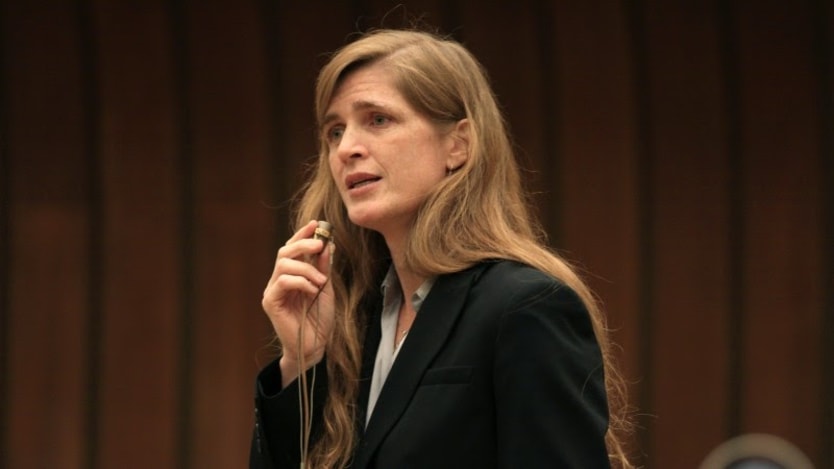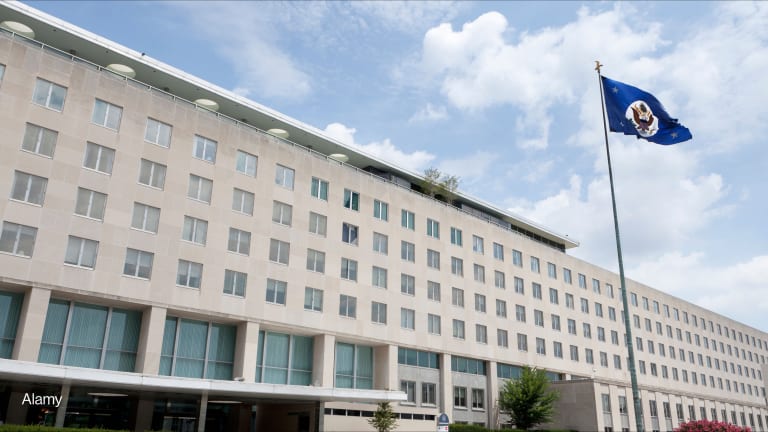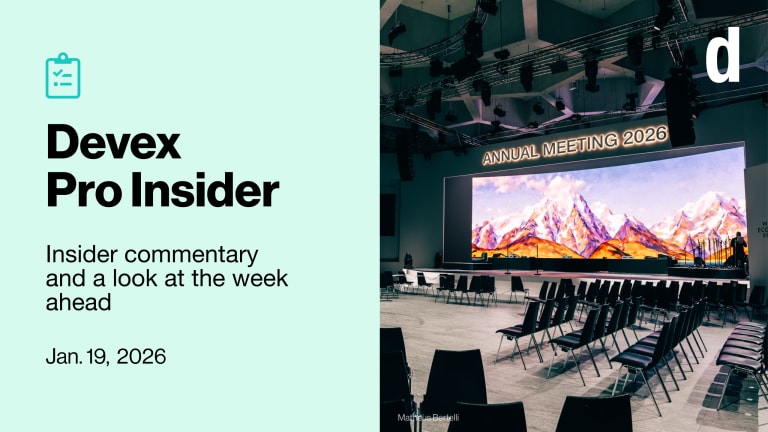USAID nominee Power calls for US to lead on global COVID-19 response

The United States needs to take a leadership role in global COVID-19 response and play an active part in helping address the mounting number of world crises — from the coup in Myanmar to the protracted conflicts in Yemen, Syria, and Venezuela, according to Samantha Power, the nominee to lead the U.S. Agency for International Development.
“The only way a collective action problem gets addressed, resolved, is for a catalytic actor to put skin in the game and to leverage what it is doing to get others to do more,” Power said at an online event Wednesday. While some countries have tried, the U.S. — by virtue of its stature and potential funding ability — can make a critical difference in global COVID-19 response, though it will face trust issues with world leaders, Power said.
In the Ebola response, U.S. leadership and commitment to deploy troops and other personnel helped mobilize other countries to act and spurred coordination, including with China, she said.
The $11 billion in global funding in President Joe Biden’s COVID-19 relief bill “desperately” needs to be preserved, Power said. Advocates, including CARE and the ONE Campaign, are calling for $20 billion to fund the mounting needs of the global response.
Power, who has been speaking to lawmakers ahead of her nomination hearing — which may come as soon as next week — said she heard agreement on several foreign aid issues from members of both parties.
“Everybody just feels these gains that so many countries and communities have ... are imperiled in such profound ways,” she said.
She credited development advocates — including CARE, which organized the event — with working hard to build bipartisan support for these issues, which Power said “requires kind of fighting gravity.”
The challenge both parties face now is how to convey why foreign aid matters to “people who are hurting in our own country in unprecedented ways,” she said.
There are two key dimensions in making the argument for robust U.S. engagement in COVID-19 response: the risk of continued mutations and spread if there is unequal vaccine access and response, and the real economic consequences of not having a robust global response — which the International Chamber of Commerce estimated would cost the global economy $9 trillion, she said.
Beyond the health response to COVID-19, Power outlined a number of other key priorities, such as secondary impacts of the pandemic, including more than 1 billion students out of school, skyrocketing malnutrition rates, and violence against women.
There are also a host of other global humanitarian and development challenges, including the recent coup in Myanmar, she said. This is a “prevention moment” where the U.S. needs to see what can be brought to bear to “get the attention of the generals in a timely enough way before those cascading events occur,” Power said.
“It's not a traditional conflict situation, but it's a great example of what is now plaguing the world, which is domestic political crises and outright conflicts. Civil wars or international civil wars are just not ending. They're not ending. And so what's happening is each time there's a new crisis, ... that compounds not only the Rohingya crisis, but the crisis in Yemen, the crisis in Syria, the fact that Venezuela is only hemorrhaging more — not fewer — people every year,” she said.
This situation of mounting complex crises is why “we have to fight for foreign assistance that is fit for purpose for this moment” and is also why more private sector engagement is needed, Power said.
USAID’s budgets are skewed toward emergencies “because they can’t not be,” but “it means the longer-term investments, that the ability of these countries to be more self-reliant,” are harder to finance and will require a broader set of partners, she said.
That will include bringing China and “spoilers” into conversations to help address and try to reduce the number of conflicts, Power said.
“We've got to start to subtract emergencies and humanitarian symptoms from the overall ledger of challenges that we're facing. And that requires, you know, just old-school diplomacy with many more actors at the table,” she said.
Search for articles
Most Read
- 1
- 2
- 3
- 4
- 5








